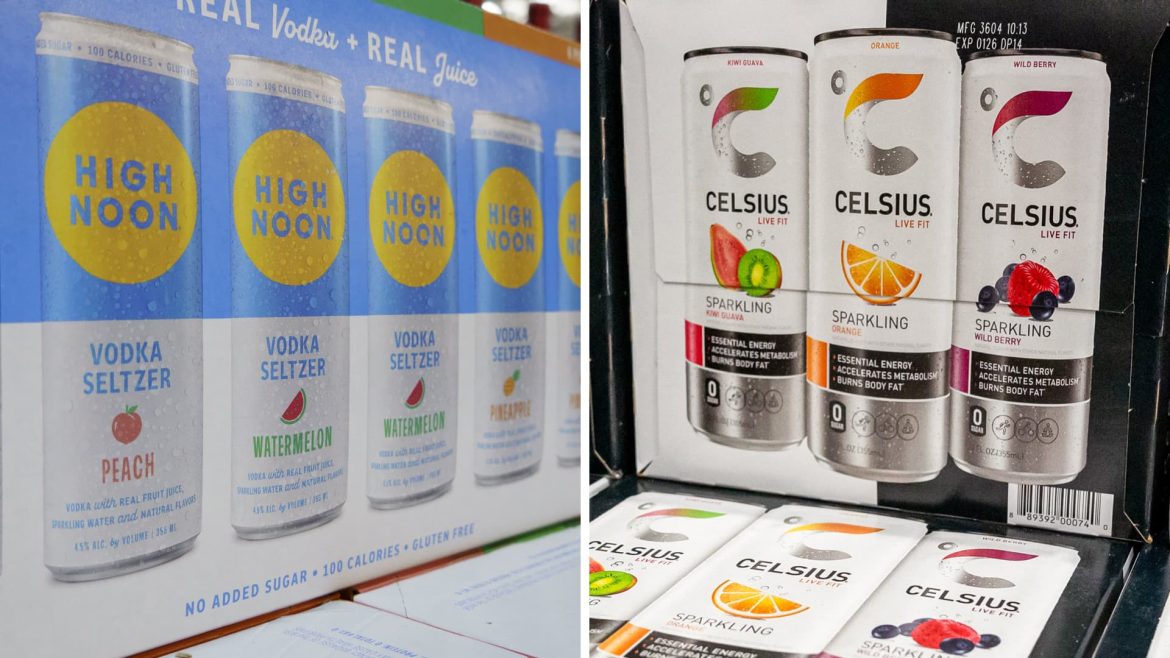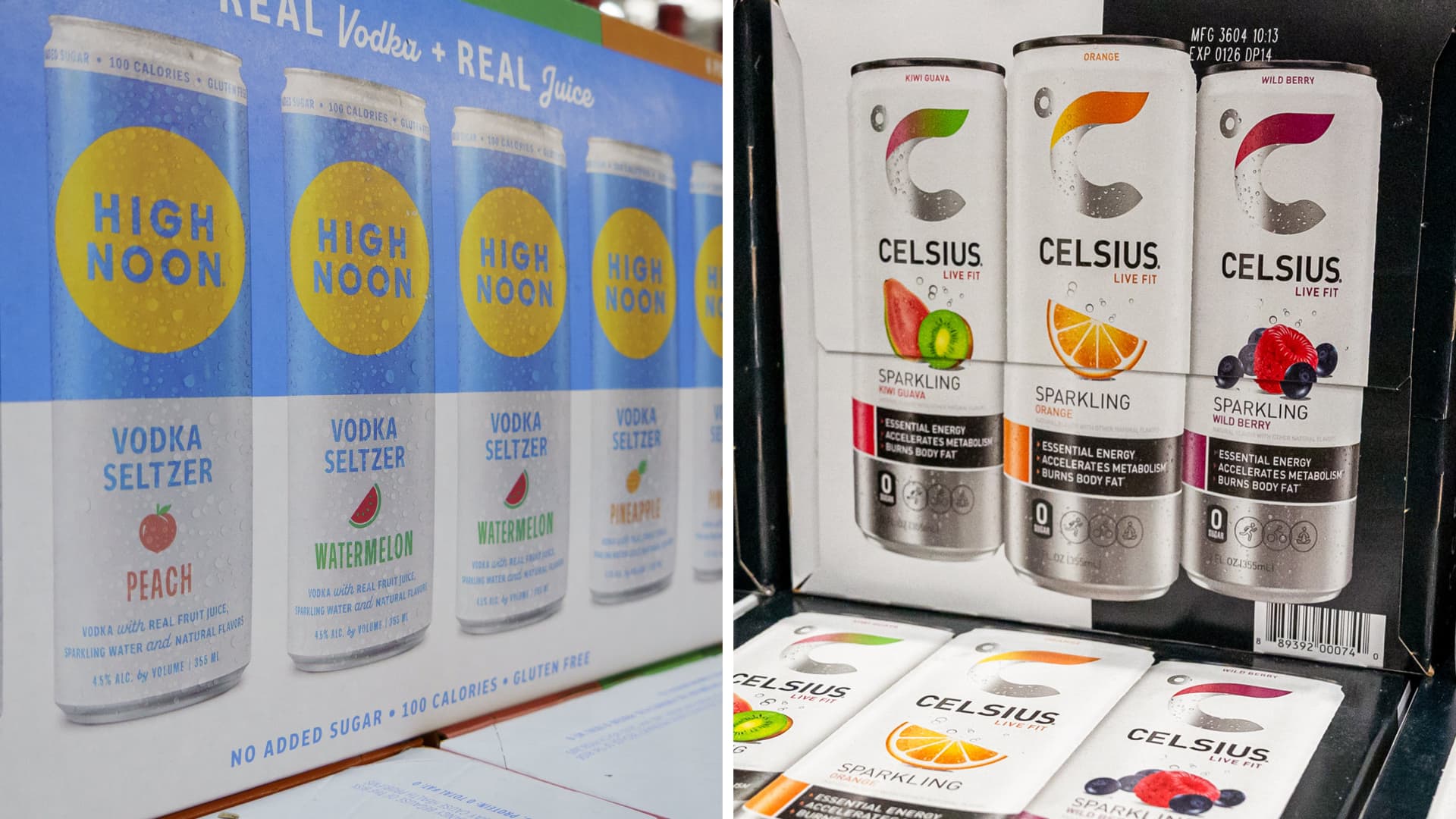The High Noon Recall: A Wake-Up Call for the RTD Alcohol Industry
The ready-to-drink (RTD) alcohol market has witnessed rapid growth, with brands like High Noon emerging as frontrunners in the race to capture consumer attention. However, the recent recall of High Noon’s Beach Variety Pack has cast a shadow over the brand’s reputation, raising critical questions about quality control, supply chain management, and consumer safety. This incident, though accidental, underscores the vulnerabilities inherent in the RTD market and serves as a cautionary tale for the industry.
The Anatomy of a Mix-Up: How It Happened
The root of the problem lies in the shared packaging supplier model, a common practice in the beverage industry aimed at cost efficiency. High Noon and Celsius, both clients of the same supplier, found themselves entangled in a labeling nightmare when empty Celsius cans were mistakenly shipped to High Noon’s production facility. Unaware of the error, High Noon proceeded to fill these mislabeled cans with their vodka seltzer, resulting in a product that was a far cry from the non-alcoholic energy drink consumers expected.
This mix-up highlights the delicate balance between efficiency and accuracy in the supply chain. The incident was not a result of High Noon’s production processes but rather a breakdown in communication and oversight between the supplier and the brand. The consequences, however, fall squarely on High Noon, as consumers associate the brand with the product they consume, regardless of the supply chain intricacies.
The Ripple Effect: Consumer Risks and Industry Implications
The recall of High Noon’s Beach Variety Pack has far-reaching implications, extending beyond the immediate inconvenience to consumers. The primary concern is the potential for unintentional alcohol consumption, a risk that could have serious consequences for individuals who avoid alcohol for personal, health, or religious reasons. The mislabeling could lead to unexpected impairment, posing risks to both the consumers and those around them.
For High Noon, the recall is a significant blow to its brand reputation. The company has built its success on the promise of quality and consistency, and this incident threatens to undermine consumer trust. The RTD market is highly competitive, and any setback can provide an opening for competitors to gain market share. High Noon must act swiftly to address the issue and reassure consumers of its commitment to quality and safety.
The incident also draws attention to the vulnerabilities of the supply chain. The reliance on shared suppliers introduces risks that can have cascading effects on multiple brands. This recall serves as a wake-up call for the industry to reassess its supply chain management practices and implement more robust quality control measures.
Lessons Learned: Strengthening the Supply Chain
The High Noon recall offers several valuable lessons for the RTD alcohol industry. First and foremost, brands must exercise greater oversight over their supply chains. This includes conducting regular audits, implementing stricter quality control protocols, and establishing clear communication channels to prevent errors and mislabeling.
Investing in advanced quality control technologies and processes is another critical step. Automated inspection systems, barcode scanning, and real-time data tracking can help detect and prevent labeling errors before they reach consumers. Comprehensive employee training is also essential to ensure that workers are aware of potential risks and are equipped to identify and address labeling errors.
Transparent and proactive communication is crucial in the event of a recall. Brands should promptly notify consumers, provide clear instructions on how to identify and dispose of affected products, and offer adequate compensation for their inconvenience. Embracing traceability systems can help brands quickly identify the source of errors and limit the scope of recalls. This includes tracking the movement of ingredients, packaging materials, and finished products throughout the supply chain.
Conclusion: A Path Forward for High Noon and the RTD Market
The High Noon recall is a stark reminder that even the most successful brands are not immune to mishaps. However, it also presents an opportunity for the brand and the industry to learn from their mistakes and strengthen their commitment to quality and consumer safety. By addressing the issue head-on and implementing the necessary improvements, High Noon can weather this storm and emerge stronger.
The RTD alcohol market is dynamic and competitive, and incidents like this recall are inevitable. However, the key to overcoming such challenges lies in proactive measures, robust quality control, and a renewed focus on consumer trust. High Noon has the opportunity to turn this setback into a success story by demonstrating its resilience and commitment to excellence. The road ahead may be bumpy, but with the right strategies in place, High Noon can ensure that its future offerings are met with the trust and confidence they deserve.





